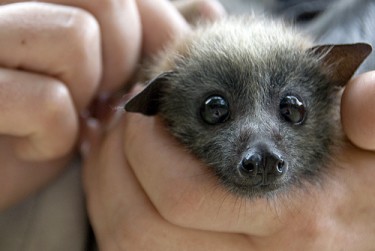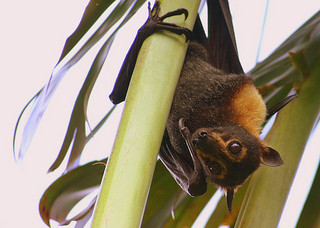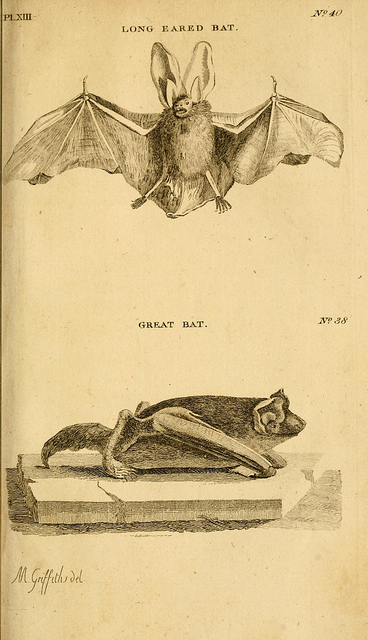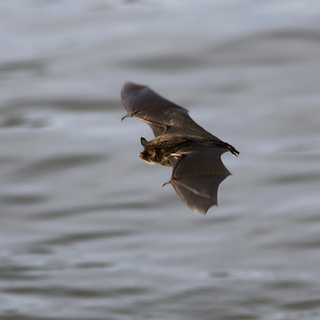Bats are legally protected under British law, and as such destroying a bat roost in order to develop a property is a really, really bad idea.
The particular property developer involved in the case linked above is in especially deep guano. Prosecutors are using him to sound out whether a Proceeds of Crime Act hearing can apply to disrupting or destroying an area bats live in – in this case, the value of the items to be confiscated could be pitched extremely high.
While we wait in the wings to see if lofty ideals or batty short-term thinking rule the roost, here are six great reasons you should leave bats well alone – other than the fact that the law's on their side!
1. Bats Are Incredibly Valuable To Science
Bats are hugely diverse, with the second-largest number of species in the mammal clade (rodents have the largest number of species). This diversity offers a great insight into how species differentiate and come to occupy different niches, and shows up important parallels with animal behaviours from other orders.
They're also valuable in that the primary way that many microbats communicate, navigate and effectively 'see' their environment is by echolocation.
This means that they're constantly giving out information about the way that they perceive, understand and communicate with the world – that's awesome for scientists!
You can help out with this here.

2. They Eat Harmful Insects

That bats eat mosquitoes is incredible – mosquitoes, as carriers of malaria and West Nile virus, are the single biggest killer of humans.
It's not just mosquitoes though, as bats also eat the moth Helicoverpa zea, a widespread pest that devastates many types of important crops.
Anything protecting both our lives and our food has to be worth preserving!
3. They Could Explain A Lot About Evolution
Bats have a really limited fossil record, because their skeletons are so thin in order to be light. However, there are some things we know about them that are really odd – and might mean that understanding bats' place in the evolutionary tree could help a lot of other stuff fall into place as well.
To start with, despite their rough appearance they are not rodents – they're much more closely related to dogs, cats, horses and even whales than they are to rodents or hares.
The oldest definite bats found are only around fifty million years old, and have already proven that flight developed before echolocation in bats. Meanwhile, a bat-like tooth from the late Cretaceous suggests that there's a lot more interesting stuff left to be found.

Spectacled Fruit Bat by Shek Graham
4. They're Completely Adorable
5. Most British Bat Species Are Endangered Or Near Extinction

Image by Biodiversity Heritage Library
This is a huge tragedy. British bats might not be quite as photogenic as their huge flying fox cousins on other continents, but they're still important to the diversity and healthy functioning of the British ecosystem.
Even the most common British bats (like the brown long-eared bat pictured above) are hardly ubiquitous in the UK, and the rarest have as few as a single known remaining bat (the Greater mouse-eared bat, long thought extinct).
Losing even one species of bat is one too many!
6. They're The Only Ones Of Their Kind
With no other mammals existing with the ability for true flight, all bats are incredibly interesting.
Not all bats have echolocation as well, but for those that do they are even more fascinating, as their method of hunting prey is unique among land-dwelling mammals.

Flying Bat by Noel Reynolds
Bats are protected by both domestic and international law here in Britain, so even if you don't like bats you really shouldn't consider damaging or removing their roosts. Planning law restrictions like this are usually pretty obvious and clear-cut, so ignoring them could easily result in criminal cases being brought against you.
What do you think?
Still creeped out by the thought of bats getting in your hair? Want to make a correction to this article? Seen some bats in Kent and want to share? Get in touch with us on Twitter at @planning_lawyer.
